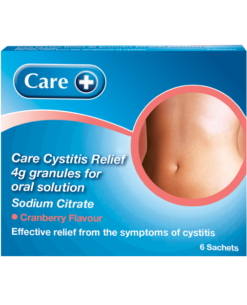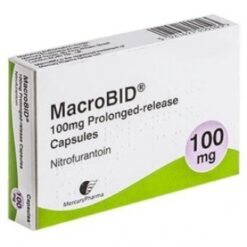
£18.99 Original price was: £18.99.£17.49Current price is: £17.49.
Variety of delivery options including next day & free delivery.
Pharmacy, clinic and prescribers based in Greater Manchester.
Start your treatment with a quick and free online consultation.
 This is a prescription product.
This is a prescription product.You need to complete a consultation form and allow our pharmacists to access your NHS records for review before we can issue this treatment.
Variety of delivery options including next day & free delivery.
Pharmacy, clinic and prescribers based in Greater Manchester.
Start your treatment with a quick and free online consultation.
Fill in a quick online consultation for our licensed pharmacists to review.
Our pharmacists will review your treatment to ensure it’s suitable.
Your treatment will be delivered to your door quickly & discreetly.
Trimethoprim is an antibiotic used to treat various bacterial infections. Its broad-spectrum nature allows it to target and eliminate a wide range of bacteria to prevent and treat various bacterial infections like cystitis and urinary tract infections (UTIs), offering a reliable solution for both immediate treatment and long-term management.
Trimethoprim is an antibiotic primarily aimed at treating and preventing UTIs. Its effectiveness lies in targeting the bacteria that cause these infections, helping to alleviate common symptoms associated with UTIs, such as:
Trimethoprim is suitable for a range of other bacterial infections, like chest infections and acne.
Trimethoprim stops the spread of bacterial infections by blocking the bacteria’s ability to make folic acid, which they need to grow and multiply. This helps to treat the infection and ease symptoms.
The typical dosage for adults and children over 12 years is 200mg, taken twice a day. For long-term treatment and prevention, the dose may be reduced to 100mg at night.
Trimethoprim is suitable for most people needing treatment for bacterial infections, especially UTIs. However, it should not be used by those who:
It’s also important to be cautious if you have kidney disease, are undergoing dialysis, or have a folic acid deficiency.
Trimethoprim 200mg tablets should be taken orally and swallowed whole with a glass of water.
For acute infections, such as bacterial cystitis, the typical duration of treatment ranges from 3 to 14 days. It’s essential to complete the full course of Trimethoprim, even if you start feeling better before the end of the prescribed period.
If you forget to take a dose of Trimethoprim, take it as soon as you remember. However, if it’s nearly time for your next dose, skip the missed dose and continue with your regular dosing schedule. Do not take a double dose to make up for a forgotten one, as this can increase the risk of side effects.
In cases of long-term treatment for preventing recurrent infections, follow the prescription carefully, as regular intake at the same time each day helps maintain consistent levels of the medication in your body, enhancing its effectiveness.
You can buy Trimethoprim online from our online cystitis treatment clinic. Complete a free consultation, and once reviewed by a licensed pharmacist, we will issue your prescription and deliver the medication directly to your door in discrete packaging.
If you experience any rare, serious, or concerning side effects, stop using Trimethoprim and seek immediate medical attention.
For a full list of side effects, read the patient information leaflet.
Active Ingredients: Trimethoprim.
Other ingredients: Lactose monohydrate, Povidone K-25, Crospovidone, Sodium starch glycolate (Type A), Magnesium stearate.
EXCELLENT
Trimethoprim typically begins to alleviate symptoms of cystitis within a few days of starting treatment, with full effectiveness depending on the severity and type of infection.
While there is no specific warning against alcohol consumption while taking Trimethoprim, it’s always advisable to consult your doctor or pharmacist, especially if you are taking other medications or have existing health conditions.
Trimethoprim should not be used during pregnancy. Consult your doctor or pharmacist for advice if you are pregnant or planning to become pregnant and have cystitis symptoms.
The length of time for which you can continue to take Trimethoprim 200mg tablets depends on several factors. These primarily include the type of bacterial infection you have and the severity of your symptoms.
For some mild infections, a short course of treatment may be sufficient. However, more serious or complicated infections may require a longer period of Trimethoprim use to ensure the bacteria are completely eradicated from your system.
Store Trimethoprim below 25°C in a dry place, away from children. Do not use after the expiry date, and dispose of unused medicine responsibly.
Yes, you can buy Trimethoprim 200mg tablets online from licensed pharmacies like our online cystitis treatment clinic.
Trimethoprim may interact with other medications such as antibiotics, anticoagulants, medications for heart conditions, epilepsy, malaria, and others. Always disclose any medications you are taking during your online consultation for review by a pharmacist.
Trimethoprim 200mg tablets are a reliable choice for treating bacterial infections like cystitis, especially for patients seeking a long-term solution for recurrent infections.

Dr Hussain Ahmad
Page content authored by Amjad Khan, last reviewed by Mr Mohammed on 30th June 2025.











